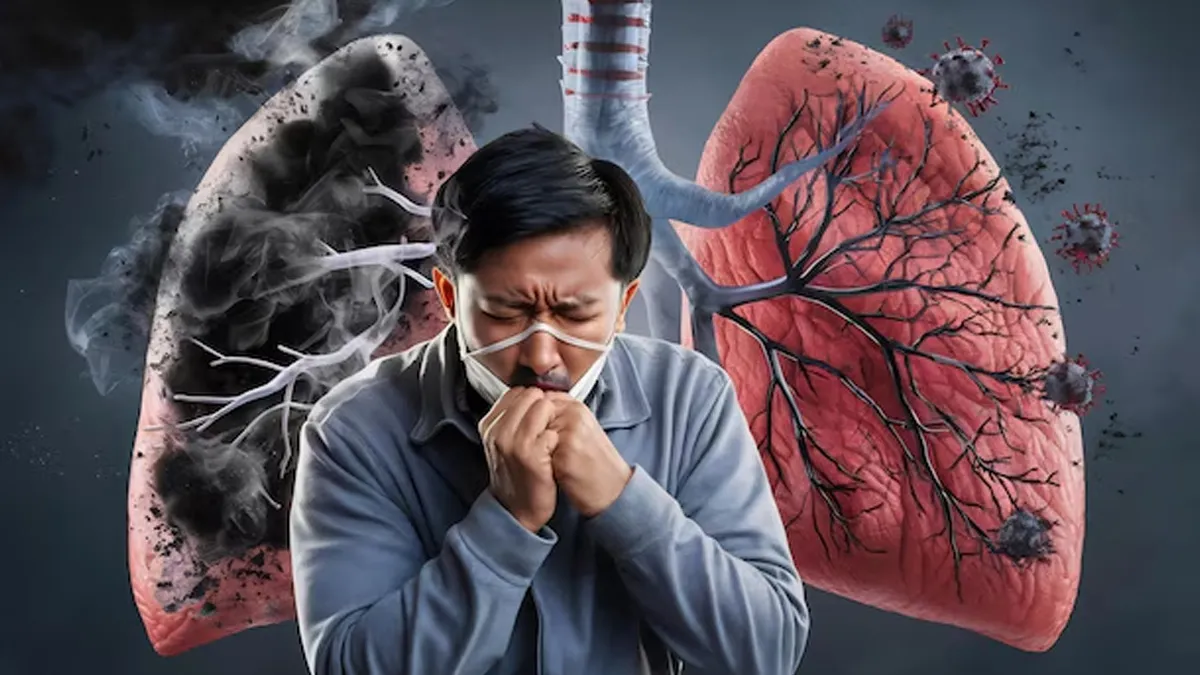
World Pneumonia Day 2025: How To Tell If Your Cough Is A Sign Of Pneumonia
World Pneumonia Day 2025: Pneumonia remains a major global health concern, claiming over 2.5 million lives annually, with vulnerable groups like the very young and the elderly facing the highest risk.
What Is World Pneumonia Day and Why Is It Observed?
November 12th is dedicated to World Pneumonia Day, an annual global effort to raise awareness of this preventable and treatable disease. As the top infectious killer of children under five, the initiative is crucial for educating the public and vulnerable populations about its serious impacts.
How To Know If Your Cough Is a Sign of Pneumonia
As noted by Dr Raja Dhar, Director & HOD-Pulmonology, CMRI, Kolkata, the danger lies in its tricky start: it often mimics a common cold but can rapidly escalate into severe respiratory distress. Early detection is crucial, but how do you know if that persistent cough is just a lingering cold or a signal of something more serious?
A cough is one of the most common reasons for a doctor visit, but not every cough points to pneumonia. According to Dr Harshil Alwani, Consultant-Pulmonology, CK Birla Hospitals, Jaipur, most often, a cough caused by a simple viral infection, cold or allergy settles down within a week or ten days. "It may be accompanied by a stuffy nose, mild throat irritation, or a bit of phlegm, but the overall discomfort tends to ease gradually.
Pneumonia, on the other hand, feels significantly different. "The cough usually lingers and becomes more intense, often bringing up yellow or green sputum," notes Dr Alwani.
Common Symptoms of Pneumonia You Shouldn’t Ignore
The strongest warning signs of pneumonia include:
1. Fever and chills
2. Chest pain when breathing or coughing
3. A feeling of breathlessness or rapid, shallow breathing
4. Unusual fatigue or sudden decline in energy
Dr Dhar cautions that if someone starts feeling unusually tired, breathing rapidly, or seems confused, particularly older adults, these are definite red flags that need immediate medical attention.
Don't miss: Eat These Foods For Speedy Recovery During Pneumonia

Who Is at Higher Risk of Developing Pneumonia?
As Dr Alwani highlights, what makes pneumonia tricky is that it doesn't always follow a textbook pattern. "This is especially true for certain high-risk groups such as elderly individuals (especially those above 65), people with diabetes or heart disease, those with weakened immunity, children, smokers and those with chronic lung conditions," he adds.
In these vulnerable populations, pneumonia can appear without high fever or a severe cough. "Sometimes, it presents quietly; just a decline in energy, loss of appetite, or mild breathlessness, which is why it's so important not to ignore subtle changes.
Diagnosis and Treatment
Diagnosis and Treatment of Pneumonia
Experts urge that early recognition and timely treatment are critical to saving lives.
"A chest X-ray remains the simplest and most reliable tool to confirm pneumonia," Dr Dhar says, adding that in unclear cases, a CT scan can provide better detail.
He further emphasises that healthcare professionals must follow rational antibiotic protocols. The irresponsible or unnecessary use of high-end antibiotics is a growing concern, contributing to antimicrobial resistance and reducing the effectiveness of these life-saving drugs.
Don't miss: World Pneumonia Day 2024: Date, History, Theme, Significance, and Symptoms
-1762933610958.jpg)
Preventive Measures for Pneumonia
Good preventive care goes a long way in strengthening the body's defenses against lung infections.
The proactive measures, according to experts are:
- Vaccination: Staying up to date with pneumonia and influenza vaccinations is essential, especially for children, older adults, and those with chronic illnesses.
- Hygiene: Regular hand hygiene is crucial.
- Lifestyle: Avoid smoking, stay well-hydrated, eat nutritious meals, and rest adequately.
- Environment: Keeping the air around you clean and smoke-free is vital, as exposure to air pollution or poorly ventilated environments makes the lungs more prone to infection.
"If a cough lasts beyond a week, worsens or is accompanies by fever or breathlessness, it's safest to seek medical help early rather than wait it out," Dr Alwani concludes.
Image courtesy: Freepik
For more such stories, stay tuned to HerZindagi.
Also watch this video
Herzindagi video